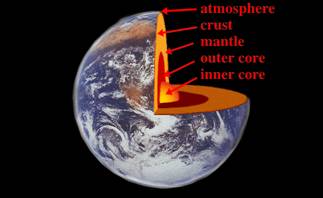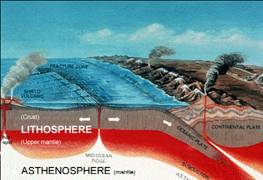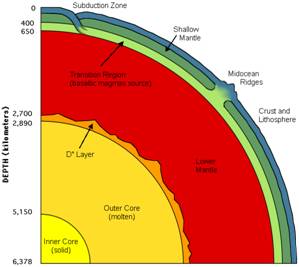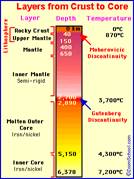Stars that Hide and Move Swiftly
So verily, I swear by the stars that recede (i.e.disappear during the day and appear during the night), And by the (cleaning) stars that move swiftly and hide themselves. Allah, the Almighty, says: [So verily, I swear by the stars that recede (i.e. disappear during the day and appear during the night), And by the (cleaning) stars that move swiftly and hide themselves.] {At-Takwir:15-16}
{فَلَا أُقْسِمُ بِالْخُنَّسِ ﴿١٥﴾ الْجَوَارِ الْكُنَّسِ} [التكوير:15-16]
Transliteration: fala okosemu bel khnnas algawari lkonnas
The Scientific Fact:
Black holes are the late stages of the life of gigantic stars which are five times larger than the sun. These stars are of great density and gravity that they almost gravitate everything even light whose speed is 300,000 km/. Therefore, they are given this name (i.e. black holes) because anything that approaches them disappears, and they are seen as black holes in space.
These giant hidden stars sweep away anything in their way including other stars and that is why they are called gigantic vacuum-cleaners. These facts are proven by the calculations made by Karl Schwars Child in 1916 and Robert Oppenheimer in 1934. Since 1971, the existence of such black holes in space has become more and more probable. For instance, scientists believe that our galaxy (the Milky Way) is considered one of these black holes.
Facets of Scientific Inimitably:
Allah, the Almighty, swore by these things to confirm the fact that the Ever-Glorious Qur'an is a Divine revelation. He (Exalted and Glorified be He) says: [So verily, I swear by the stars that recede (i.e. disappear during the day and appear during the night). And by the (cleaning) stars that move swiftly and hide themselves. And by the night as it departs; And by the dawn as it brightens; Verily, this is the Word (this Qur'an brought by) a most honorable messenger [Jibril (Gabriel), from Allah to the Prophet Muhammad (Peace be upon him)].] {At-Takwir:15-19}
{فَلَا أُقْسِمُ بِالْخُنَّسِ﴿١٥﴾ الْجَوَارِ الْكُنَّسِ﴿١٦﴾ وَاللَّيْلِ إِذَا عَسْعَسَ﴿١٧﴾ وَالصُّبْحِ إِذَا تَنَفَّسَ﴿١٨﴾ إِنَّهُ لَقَوْلُ رَسُولٍ كَرِيم}
Transliteration: fala okosemu bel khnnas algawari lkonnas wa lail itha assass wa s-sobuh itha tanaffas innahu laqawlu rasoolin kareem
The importance of this kind of confirmation lies in the object used for swearing here, which is described in a way tantamount to black holes. The black holes are running stars that move in their poles, and hide themselves after having been obvious, as they are at the end of their lives.
They produce no light due to their gravity which enables them to gravitate everything in their way and clear their way by swallowing up everything around.
The Ever-Glorious Qur'an describes them as being ‘cleaners’ in conformity with the scientific description.
The Qur’anic description which confirms the scientific one stands as decisive evidence that the Ever-Glorious Qur'an is the true word of Allah - Glory be to Him
he Seven Earths
A simple image of Earth and the interior layers. Windows to the Universe, at (http://www.windows.ucar.edu) at the University Corporation for Atmospheric Research (UCAR). ©1995-1999, 2000 The Regents of the University of Michigan; ©2000-05 University Corporation for Atmospheric Research.
The Sunnah of Prophet Muhammad is the second revealed source of Islam. Like the Quran, it contains scientific information unavailable 1400 years ago. From these miracles is the “seven” earths, mentioned by the Prophet in several of his sayings. From them are the following two:
Hadith 1
It was narrated on the authority of Abu Salamah that a dispute arose between him and some other people (about a piece of land). When he told Aisha (the Prophet’s wife) about it, she said, ‘O Abu Salamah! Avoid taking the land unjustly, for the Prophet said:
«Whoever usurps even one span of land of somebody, its depth through the seven earths will be collared to his neck.» [Saheeh Al-Bukhari, ‘Book of Oppression.’]
Hadith 2
Salim narrated on the authority of his father that the Prophet said:
«Whoever takes a piece of land of others unjustly, he will sink down the seven earths on the Day of Resurrection.»[Saheeh Al-Bukhari, ‘Book of Oppression.’]
The aforementioned hadith prohibits oppression in general, especially the taking of a piece of land belonging to others unjustly. What are the seven earths they refer to?
Studies in geology have proven that the earth is composed of seven zones, identified from the inner to the outer layers as follows:
(1) The Solid Inner Core of Earth: 1.7% of the Earth’s mass; depth of 5,150 - 6,370 kilometers (3,219 - 3,981 miles)
The inner core is solid and unattached to the mantle, suspended in the molten outer core. It is believed to have solidified as a result of pressure-freezing which occurs to most liquids when temperature decreases or pressure increases.
(2) The Liquid Outer core: 30.8% of Earth’s mass; depth of 2,890 - 5,150 kilometers (1,806 - 3,219 miles)
The outer core is a hot, electrically conducting liquid within which convective motion occurs. This conductive layer combines with Earth’s rotation to create a dynamo effect that maintains a system of electrical currents known as the Earth’s magnetic field. It is also responsible for the subtle jerking of Earth’s rotation. This layer is not as dense as pure molten iron, which indicates the presence of lighter elements. Scientists suspect that about 10% of the layer is composed of sulfur and/or oxygen because these elements are abundant in the cosmos and dissolve readily in molten iron.
(3) The “D” Layer: 3% of Earth’s mass; depth of 2,700 - 2,890 kilometers (1,688 - 1,806 miles)
This layer is 200 to 300 kilometers (125 to 188 miles) thick and represents about 4% of the mantle-crust mass. Although it is often identified as part of the lower mantle, seismic discontinuities suggest the “D” layer might differ chemically from the lower mantle lying above it. Scientists theorize that the material either dissolved in the core, or was able to sink through the mantle but not into the core because of its density.
(4) Lower Mantle: 49.2% of Earth’s mass; depth of 650 - 2,890 kilometers (406 -1,806 miles)
The lower mantle contains 72.9% of the mantle-crust mass and is probably composed mainly of silicon, magnesium, and oxygen. It probably also contains some iron, calcium, and aluminum. Scientists make these deductions by assuming the Earth has a similar abundance and proportion of cosmic elements as found in the Sun and primitive meteorites.
(5) Middle Mantle (Transition region): 7.5% of Earth’s mass; depth of 400 - 650 kilometers (250-406 miles)
The transition region or mesosphere (for middle mantle), sometimes called the fertile layer, contains 11.1% of the mantle-crust mass and is the source of basaltic magmas. It also contains calcium, aluminum, and garnet, which is a complex aluminum-bearing silicate mineral. This layer is dense when cold because of the garnet. It is buoyant when hot because these minerals melt easily to form basalt which can then rise through the upper layers as magma.
(6) Upper Mantle: 10.3% of Earth’s mass; depth of 10 - 400 kilometers (6 - 250 miles)
The upper mantle contains 15.3% of the mantle-crust mass. Fragments have been excavated for our observation by eroded mountain belts and volcanic eruptions. Olivine (Mg,Fe)2SiO4 and pyroxene (Mg,Fe)SiO3 have been the primary minerals found in this way. These and other minerals are refractory and crystalline at high temperatures; therefore, most settle out of rising magma, either forming new material or never leaving the mantle. Part of the upper mantle called the asthenosphere might be partially molten.
(7) Lithosphere
Oceanic crust: 0.099% of Earth’s mass; depth of 0-10 kilometers (0 - 6 miles)
The rigid, outermost layer of the Earth comprising the crust and upper mantle is called the lithosphere. The oceanic crust contains 0.147% of the mantle-crust mass. The majority of the Earth’s crust was made through volcanic activity. The oceanic ridge system, a 40,000-kilometer (25,000 mile) network of volcanoes, generates new oceanic crust at the rate of 17 km3 per year, covering the ocean floor with basalt. Hawaii and Iceland are two examples of the accumulation of basalt piles.
This image shows a cross section through the earth’s crust and upper mantle showing lithosphere plates (made of the crust layer and the top part of the mantle) moving over the asthenosphere (upper mantle). Windows to the Universe, at (http://www.windows.ucar.edu) at the University Corporation for Atmospheric Research (UCAR). ©1995-1999, 2000 The Regents of the University of Michigan; ©2000-05 University Corporation for Atmospheric Research. Continental crust: 0.374% of Earth’s mass; depth of 0-50 kilometers (0 - 31 miles)
The continental crust contains 0.554% of the mantle-crust mass. This is the outer part of the Earth composed essentially of crystalline rocks. These are low-density buoyant minerals dominated mostly by quartz (SiO2) and feldspars (metal-poor silicates). The crust (both oceanic and continental) is the surface of the Earth; as such, it is the coldest part of our planet. Because cold rocks deform slowly, we refer to this rigid outer shell as the lithosphere (the rocky or strong layer).
This image shows the divisions of the Earth’s interior into 7 layers. (Adapted from Beatty, 1990).
Conclusion
The layers of the earth coincide with the above mentioned hadith of the Prophet. The miracle is in two matters:
(1) The expression of the hadith, «He will sink down the seven earths on the Day of Resurrection,» indicates the stratification of these “earths” around one center.
(2) The accuracy with which the Prophet of Islam referred to the seven inner layers of earth.
The only way for a desert dweller to have known these facts 1400 years ago is through revelation from God.
References
Beatty, J. K. and A. Chaikin, eds. The New Solar System. Massachusetts: Sky Publishing, 3rd Edition, 1990.
Press, Frank and Raymond Siever. Earth. New York: W. H. Freeman and Company, 1986.
Seeds, Michael A. Horizons. Belmont, California: Wadsworth, 1995.
El-Najjar, Zaghloul. Treasures In The Sunnah: A Scientific Approach: Cairo, Al-Falah Foundation, 2004.












